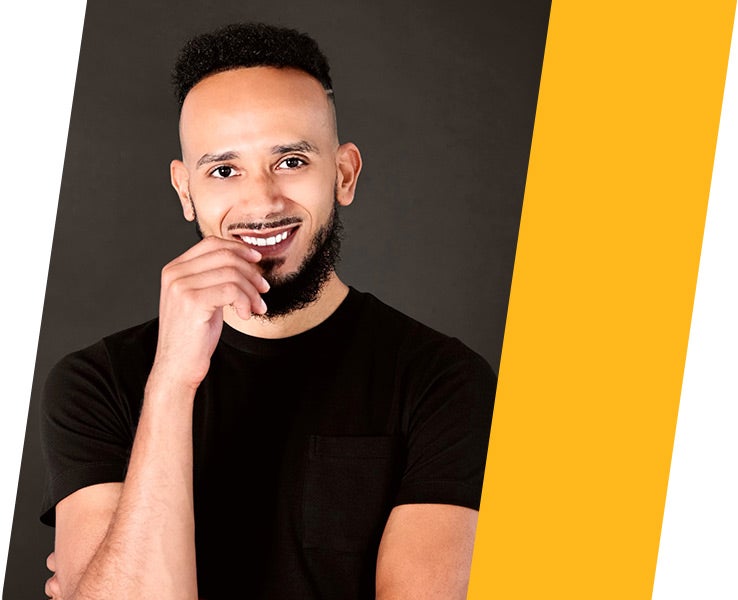Gabriel Maldonado, 33, has had an honor few will in their lifetimes: He got to introduce the president of the United States. On December 1, 2021, Maldonado, CEO of the Riverside-based nonprofit organization TruEvolution, addressed VIP attendees in the East Room of the White House just before President Joe Biden presented remarks in recognition of World AIDS Day.
Born in Fontana, Maldonado can trace his family roots to Riverside, Perris, and Rubidoux in the Inland Empire. It was in Los Angeles, however, where he lived from ages 2 to 17, that he first became a community organizer — experience that revealed his gift for bringing people together.
Maldonado studied political science and international affairs as a UCR undergraduate, starting in 2007, the year he founded TruEvolution in his Riverside apartment. It began by offering community members HIV/ STI prevention and care services. In subsequent years, the organization has added mental health and housing services as well. Today, the organization — celebrating its 15th anniversary this November — has ventured into housing development in the City of Riverside.
“My vision is to deliver every type of service an LGBTQ person could need and create an ecosystem to support the community’s self-sustenance,” he said.
“MY VISION IS TO DELIVER EVERY TYPE OF SERVICE AN LGBTQ PERSON COULD NEED AND CREATE AN ECOSYSTEM TO SUPPORT THE COMMUNITY’S SELF- SUSTENANCE.”
After graduating from UCR in 2011, Maldonado went on to earn a master’s degree in business administration from the University of Redlands. It was there he also became the survivor of sexual assault after being attacked in his apartment, and then a person living with HIV. Acquiring the virus profoundly shaped his advocacy and influenced how he leads programs and services.
“It centered me,” he said. “It became the source of my empathy and compassion. It also gave me power, inspiration, tenacity, and grit.”
Maldonado is sharply aware, however, of the difficulty marginalized communities often experience in feeling compelled to use their traumas to justify their expertise.
“It is a challenge to constantly have to relive that as a part of the vocabulary of our experience,” he said. “Some think it is empowering, but it is also fatiguing.”
He is aware, too, that at least the initial period of an organization’s existence revolves around the founders — specifically, their lived experience and that of their peers. TruEvolution’s early history is shaped by how Maldonado augmented the organization’s program when he faced discrimination and other challenges.
How Maldonado approaches business and decision making was informed by a UCR class he took on games and strategy. The course profoundly impacted his way of thinking and showed him how game theory could link decision making with political science and international affairs. It showed him, too, that he could apply such knowledge to making a tangible difference in the world, as in replicating TruEvolution’s model all over the Inland Empire. His future, he strongly believes, is in fundraising; he has already raised several million dollars for TruEvolution.
“Solid fundraising makes all the difference to an organization’s growth,” he said. “Strong relationships make up the other ingredient for success.”
He advises students to focus on relationship building because “relationships bring forth opportunities that could remain hidden otherwise.” He credits the relationships he formed when he was on the Presidential Advisory Council on HIV/AIDS with giving him the opportunity last year to introduce President Biden on World AIDS Day. Despite his many successes, Maldonado struggles with imposter syndrome, which, he said, is not uncommon among young leaders like him, many of whom question their worth when advocating on behalf of their communities. He remains grounded by remembering TruEvolution’s mission and why he launched it in the first place.
“It is critical young people in leadership positions today know they all can find goals they feel passionately about and that these goals, with dedication and commitment, are achievable,” he said. “What I have accomplished, and how, are not exclusive to me but are goals to which others can also aspire. This is critical for UCR students to know.”
